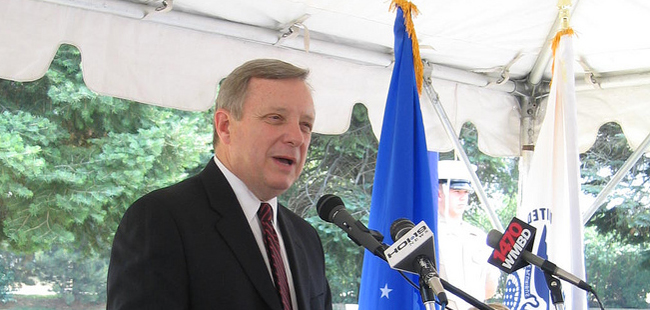
Senator Dick Durbin, a Democrat from Illinois, intends to introduce a bill after Easter that would force online retailers to collect local sales tax for online purchases. Currently, Americans who shop online at sites such as Amazon, Overstock or iTunes don’t always pay the same taxes as they would if they bought products in person at a brick-and-mortar business. Durbin says he wants to level the field for these brick-and-mortar companies.
The bill, called the Main Street Fairness Act, follows the train of thought from previously introduced legislation bearing the same name. The July 2010 Main Street Fairness Act was sponsored by Rep William Delahunt from Massachusetts, but isn’t the only other legislation floating around in the political sphere with a digital enmity. Assemblymember Nancy Skinner introduced AB 153 early 2011 in California with the intent to enforce e-fairness. AB 153 builds off of a New York movement pushing many states to favor what have come to be know as “Amazon Bills,” because of the large online retailer’s tendency to push back against such legislation.
The hot Internet sales-tax topic has already led to showdowns between big Internet vendors and states. For example, Illinois Governor Pat Quinn recently announced the state’s sales tax would apply to online purchases made in Illinois, leading Amazon to subsequently withdraw from its small business affiliates within the state to avoid the tax.
The issue is not a one-sided one, and many opponents are questioning the idea that a lack of online sales tax will bankrupt states. The New York law that has set many of these movements in motion is now being challenged in court as being unconstitutional, and stepping on the toes of the Supreme Court’s 1992 Quill decision, which specifies that a state cannot impose a tax on companies without a physical presence in the state.
Whatever the outcome may be to this issue, it’s shaping up to be an ugly and drawn-out battle.


